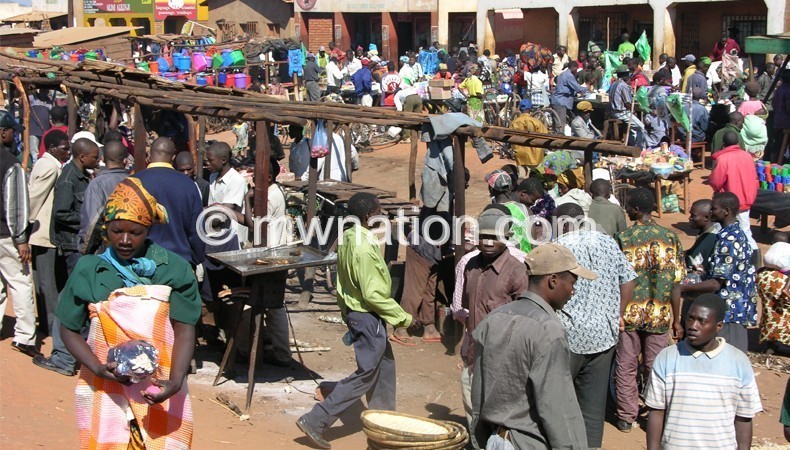Boundary headache
A border reaffirmation and demarcation exercise involving Malawi, Zambia and Mozambique has put some citizens in a fix as they have found themselves on the wrong side of the border, threatening their citizenship and property.
The three governments will have to make a tough decision to resolve the consequential property encroachment and wrangles over land ownership, a survey report has shown.

The report—prepared after a decade-long joint boundary re-affirmation and demarcation exercise—has revealed that there is a number of both public and private property from the three countries that has encroached into foreign land.
Predominant Malawian infrastructure found in Zambia include Chimaliro Police in Kasungu, about 1.4 km of Kasungu to Mzuzu (M1) Tarmac Road, part of Jenda Trading Centre in Mzimba, part of land and buildings of Estate number 96 belonging to Press Agriculture in Mzimba, part of Khombe Estate in Rumphi and some private infrastructure along the whole boundary line, according to the report.
Zambia, too, has a share of properties constructed in the Malawian soil, which include private, commercial and residential buildings and part of Mwami Border Post in Chipata-Mchinji districts, half of Mgabi Village, part of Zambian government and private infrastructure at Lusuntha-Mqocha Border Post in Mzimba and part of land and buildings belonging to Zuba Estate.
The survey report presented to the Office of the President and Cabinet (OPC), has provided two possible options, one of which is to maintain the boundary as physically demarcated in line with the Berlin Accord of 1885.
This means Malawian infrastructure in Zambia will remain there. However, the survey report warns that this arrangement “will have social, economic, political and cost implications”.
The other proposed option is for Malawi to maintain the boundary, but re-align where necessary based on go for ‘give-and-take principle’ in line with the final agreement of the two governments.
The Surveys Department envisages that this option “will have the effect of minimising problems in the heavily affected areas such as Jenda Trading Centre”.
A surveyor, Francis Liuma, who has been involved in the boundary re-affirmation exercise, suggests that the second option, though costly, would be a better deal for Malawi. Liuma, however, thinks government may not easily settle for this particular option.
He further expressed doubt whether Zambia and Malawi will settle for the second option since the contested land may have different economic value and each of the countries may not want to lose a part of land that has economic potential.
“Zambia has gone more into Malawi in areas that are mineral rich towards Jenda in Mzimba while Malawi went into Zambia in the agricultural zone areas like Mchinji,” he added.
The boundary line between Malawi and Mozambique, especially around Makanjira in Mangochi, has been a source of endless community conflicts. The survey report indicates that there has also been some encroachment of villages and structures on both sides and the survey team has erected more visible boundary pillars for people to know the separating line.
“Malawi’s Chala Border Post was found to be in Mozambican territory but has recently been relocated to Malawi and Mozambican temporary border post structures for border police…were found to be in Malawi territory but were relocated inside Mozambique soon after the re-affirmation exercise,” reads the report, which further shows that a number of villages and gardens for both Malawi and Mozambique have encroached into each other’s territory.
Some affected villagers in Traditional Authority (T/A) Makanjira are protesting the boundary. According to a leader for the aggrieved community, Yusuf Saidi, about 18 villages have been lost to Mozambique.
Saidi said they have given government up to December 15 to act on their grievances or else they will embark on an indefinite vigil at the district council’s office.
In a telephone interview, T/A Makanjira, sounding helpless, sympathised with his subjects, appealing to President Peter Mutharika to go for a deal that will not disadvantage his people.
“This is their land and has always been, but now there are beacons showing that their land belongs to Mozambique. There is nothing I can do because the President has a final say. We will wait to hear from the President on this issue. My people need help,” he explained, indicating that he had not endorsed the planned vigil, stressing that the solution lies in Mutharika.
In response to our questionnaire, Surveyor General Julius Chisi said they are aware of community grievances, adding that communities must appreciate that they are not creating new boundary line, but simply re-affirming long-time agreed upon boundaries.
Chisi pointed out that developed comprehensive terms of reference and for now “it has been agreed that the local people should stay where they are, cultivate land the way they have been doing until the two governments agree on the way forward”. Malawi and Mozambique have
T/A Mabilabo, whose Jenda area is part of the contested land, blamed government for lack of consultation, saying this was a sensitive issue which requires full involvement of communities.
Chisi said they will continue engaging communities and raising awareness and minimising resistance.
One of the ways, according to Chisi, is to create cross-border village committees to resolve boundary-related issues.
Malawi and its neighbours are expected to resolve all concerns in just about three years as the African Union (AU) set 2022 as the deadline for boundary re-affirmation and demarcation exercise. The aim is to avert conflicts arising from border disputes among countries.
It is unlikely that Malawi will meet the deadline as the exercise with Tanzania has stalled in view of on-going Lake Malawi wrangle mediation.
The survey report will have to be discussed by a joint committee of ministers in concerned countries, which is a high authority, to decide on the way forward. Chisi is, however, optimistic that resources permitting, they can beat the AU set deadline.





